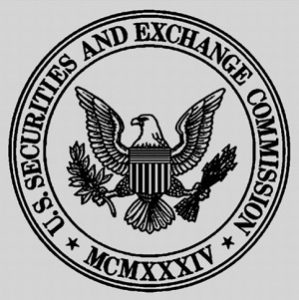 Fintech was portrayed as having nearly unlimited possibilities but also extremely vulnerable to vultures in the first of what should be a series of hearings on the topic in 2018.
Fintech was portrayed as having nearly unlimited possibilities but also extremely vulnerable to vultures in the first of what should be a series of hearings on the topic in 2018.
Missouri Republican Congressman Blaine Luetkemeyer is Chairman of the House Financial Services sub-committee on Financial Institutions and Consumer Credit and that sub-committee held a hearing entitled: “Examining Opportunities and Challenges in the Financial Technology (‘Fintech’) Marketplace”.
“The use of these technologies has proven to spur innovation that aids in delivery of services and products to consumers and small businesses,” Luetkemeyer said of fintech. “An increasing role of fintech shows the financial needs of Americans have changed; the rise of mobile banking and mobile payments technology have revolutionized how Americans interact with institutions and make financial decisions. We should always advocate for innovations that helps the American people and the economy; we must also understand the implications this technological revolution can have on the consumer.”
To try and strike the right balance between letting fintech entrepreneurs being free and curbing excess Luetkemeyer said he intends this to be the first of several hearings: “The bottom line is this is a universe that seems to evolve on a daily basis, it’s my intention to hold a number of hearings on fintech.”
One of the witnesses, Brian Knight, Director, Program on Financial Regulation and Senior Research Fellow, Mercatus Center, George Mason University, struck a similar tone.
“Advances provided by financial technology (fintech) have the potential to provide Americans with better, cheaper, and more inclusive financial services. Unlocking that potential requires modernizing the regulatory environment to encourage innovation and competition while providing Americans with necessary consumer protection. While financial technology may be able to help people, there is a risk that mis-regulation will inhibit this possibility.” Knight noted. “There is also risk. While technology enables legitimate businesses to reach new customers without regard for distance. It also allows fraudsters to find new victims. While crypto-currencies allow the oppressed to avoid the predations of their government; it can allow those same governments to avoid sanctions. Done well Initial Coin Offerings allow our capital markets to be more efficient; done poorly they leave both investors and well-meaning but ignorant companies both exposed.”
He noted that the regulators: The Securities and Exchange Commission (SEC), the Commodities Futures Trading Commission (CFTC), the Federal Trade Commission (FTC), and the Consumer Financial Protection Bureau (CFPB), have all brought enforcement actions against fintech companies.
Two proposals which would most effect traders included one by Congressman Luetkemeyer, who noted that fintech regulations might be federalized.
“It’s almost important to spend time understanding the regulatory regime surrounding fintech. Predominantly regulated by the states, questions have recently been raised as to whether or not federal laws that apply to similar products and companies should apply to fintech. At the federal level, the previous Comptroller of the Currency championed an optional federal charter for fintech companies.”
The concept of federalism has been debated since the beginning of the republic, and it’s most closely associated with Thomas Jefferson, the country’s third president and author of the Declaration of Independence.
The tenth amendment of the US Constitution reads, “he powers not delegated to the United States by the Constitution, nor prohibited by it to the States, are reserved to the States respectively, or to the people.”
For Jefferson and millions who followed, the Constitution was read quite strictly and eschewed as much decision making to the states as possible.
Thus far, as Luetkemeyer has noted, fintech has been regulated like Jefferson would have liked, with the states taking the lead.
But as he also noted, there is a growing school of thought to nationalize more of the regulations, including issuing federal charters to certain fintech companies.
In December 2016, the Office of Comptroller of Currency put a white paper together entitled: Exploring Special Purpose National Bank Charters for Fintech Companies.
Brian Peters, another witness who is the Executive Director, Financial Innovation Now, proposed “an optional national money transmission license. Payment innovators currently are regulated under a fractured regime in nearly every state. An optional national license would offer consistent safeguards. And it would enhance innovation and consumer access to new products. Evenly and across the country.”
Companies which “transmit money” span the cross section of the business world but specifically trading, investment, and many crypto-currency related companies.
A license to perform a job is common in the US. Lawyers need to have their bar card, while investment advisors need licenses- series 6, 7, and/or 63- depending on which products they’d offer.
A national license would be in that mold, and it would require each company who holds the license to hold to certain standards.
A self-regulatory organization would regulate and enforce the licenses; the American Bar Association, along with each state bar is an SRO, while FINRA, which provides investment advisor licenses, is also an SRO.
By making it voluntary this will differentiate from most licenses. It is illegal in the US to practice law, medicine and most other professions which require a license without one.









